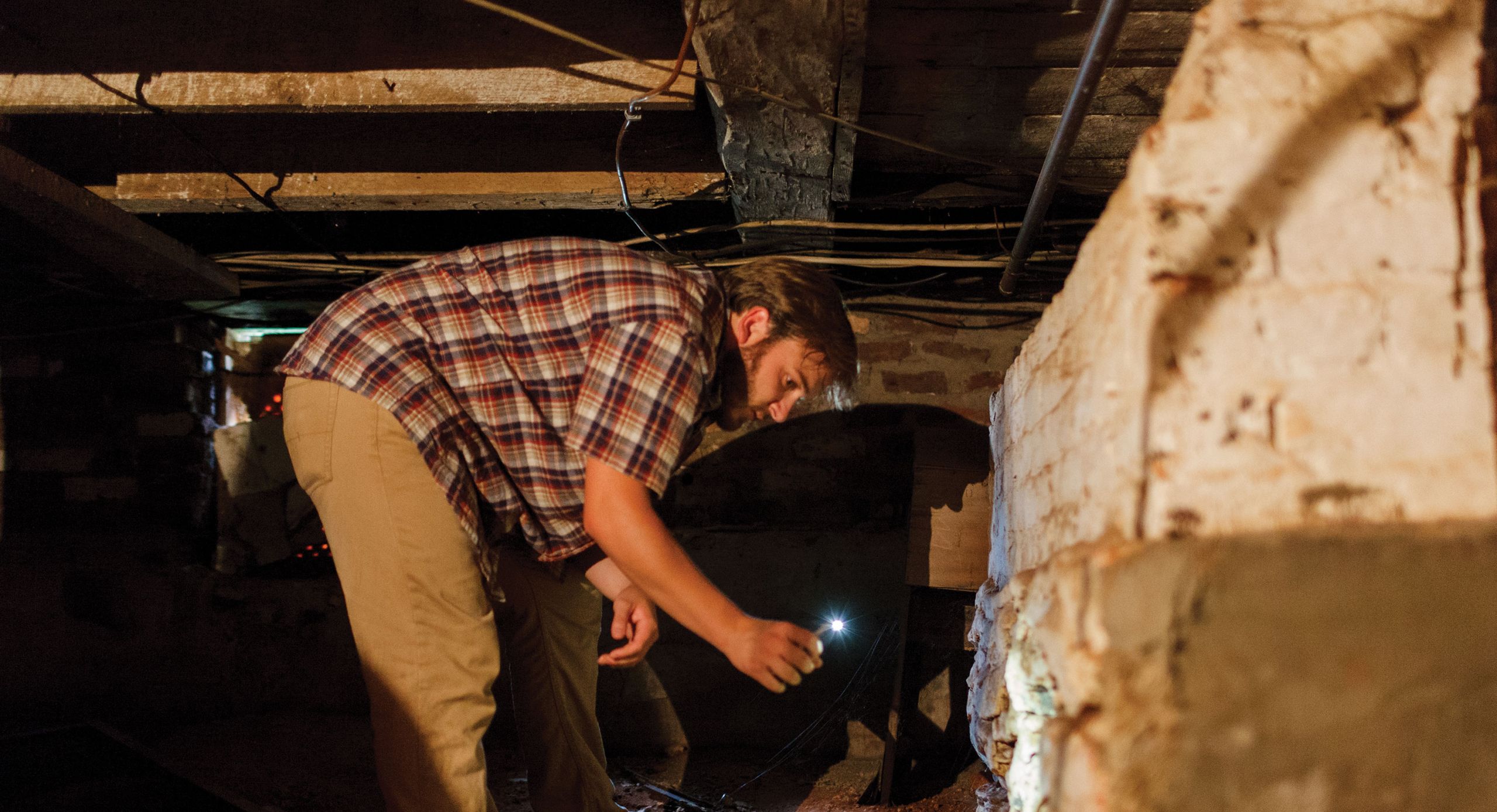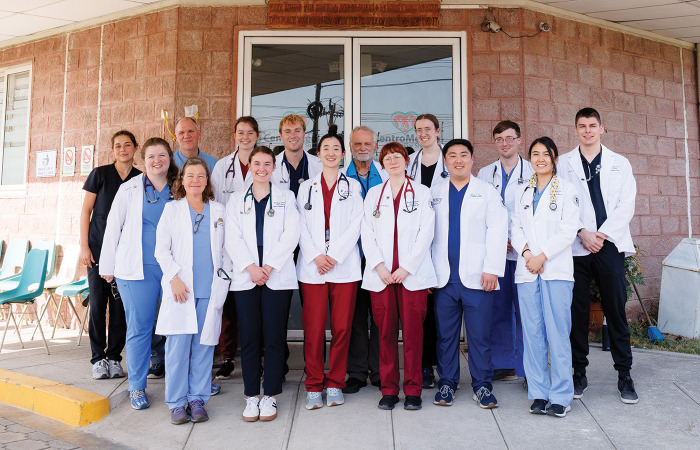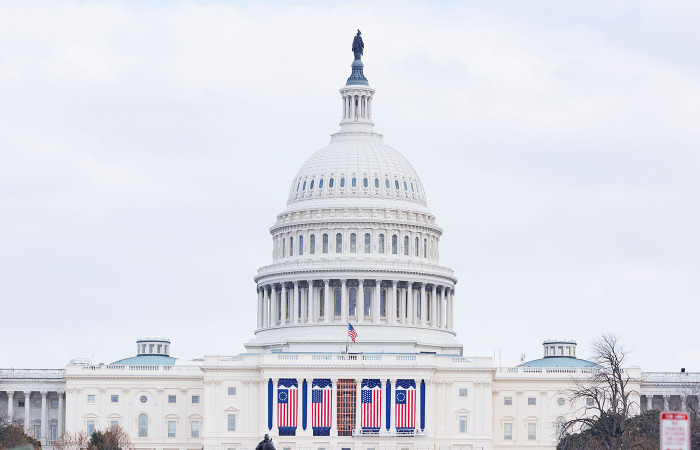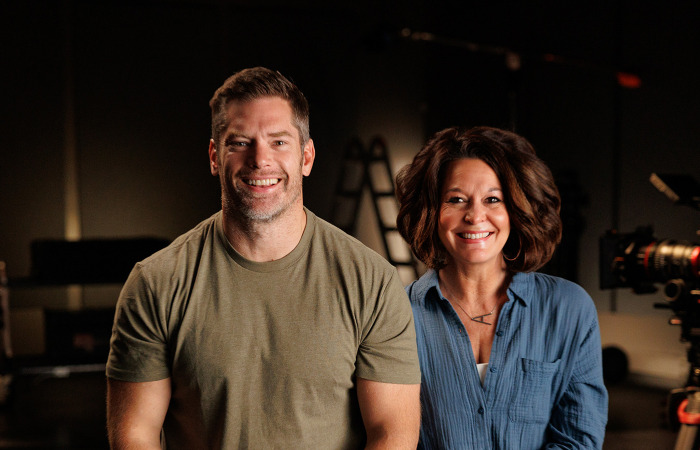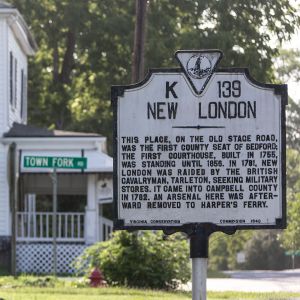
A marker shows the history of New London, a town located about eight minutes from campus.
When prospective students visit Liberty University’s Department of History and inquire about studying America’s past, they’re told: “You’re in the right place.”
With Liberty’s prime location in Central Virginia — only a few hours’ drive from the nation’s capital and Colonial Williamsburg, and even closer to the homesteads of several of the country’s presidents — the opportunities to study history nearby are abundant.
Last year, Donna Davis Donald, assistant professor of history, received a university-sponsored Illuminate grant to add to those opportunities by launching an introductory course in public history this fall. The course allows students to gain hands-on experience in areas such as historic preservation, museum management, archaeology, archiving, fundraising, and marketing — everything that helps bring history to the general public.
The class took its first field trip in September, venturing only a few miles from campus to a little-known but significant town in American history. Randy Lichtenberger, a local historical archaeologist, led the group through New London, which was established in Bedford County in the mid-18th century — before Lynchburg even existed. At the time, many thought the town would grow to become the “new London” in America. In fact, in “Lynchburg, A City Set on Seven Hills,” author Clifton W. Potter credits Thomas Jefferson with predicting “that two American communities, New London and New York, would in time achieve great things.”
New London was the county seat of Bedford County, which once encompassed all of Bedford and Campbell counties and the city of Lynchburg, as well as parts of Appomattox and Franklin counties.
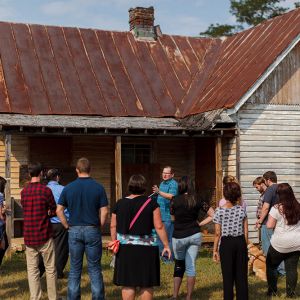
Randy Lichtenberger of the Friends of New London tells the history of an old physician’s office during a tour of the town.
During the Revolutionary War, New London hosted one of only a handful of official Continental Army arsenals in the colonies; thousands of weapons and ammunition were made, repaired, and stored there. Later, for many pioneers who headed out west, the town was the last stop before the Frontier. New London was also the scene of an intense Civil War battle during Hunter’s Raid in 1864.
Lichtenberger, who serves as chairman of the Board of Directors for the local nonprofit organization Friends of New London (FNL), led the class on a walking tour of the historic parts of town, now only a neighborhood with a few landmarks scattered among modern-style homes and apartments. His group has hopes of restoring some of the historic properties — including two churches, an old physician’s office, and a tavern — and opening them to the public someday.
The organization will receive some help from one of its most recent partners — Liberty University. The university recently acquired Mead’s Tavern from FNL, agreeing to continue its restoration efforts. Built in 1763, the two-story building is believed to be the oldest structure in the Lynchburg region. It was originally an ordinary (or tavern) providing meals and a night’s stay to travelers in the once-bustling town. Centrally located across from the spot where the courthouse used to stand, Mead’s Tavern is said to have attracted some well-known historical figures, including Thomas Jefferson, Patrick Henry, and Daniel Boone.
Though the recent field trip was simply a case study for Donald’s class, the history department hopes to soon have students directly involved in the tavern project, working alongside restoration professionals as the site becomes the students’ own laboratory.
Lichtenberger said FNL will work closely with Liberty during the restoration, providing research and the results of previous archaeological surveys. FNL will have office space in the building and will support the opening of a public museum if one is created.
“We view Liberty’s purchase of the property as the beginning of a long-term collaboration to restore and interpret the structure,” he said. “It’s also an opportunity to advance our mission of researching and sharing the almost-lost story of New London, one of the most significant Revolutionary Era towns in Virginia.”
Donald said the department has had plans to launch a public history program for a long time, “but this project kind of pushed us in that direction a little harder.”
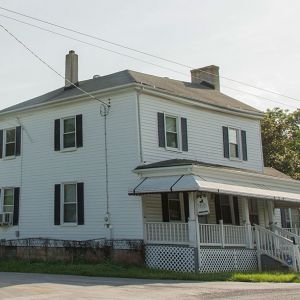
Mead’s Tavern, built in 1763, has been modernized over the years and was most recently used as a private residence. It is believed to be the oldest structure in the Lynchburg region.
“It’s a wonderful example of the ways in which the university can partner with local groups to promote projects that are of interest to the community,” she said. “It’s not just about Liberty; it’s really about the Central Virginia area and historical awareness, helping to preserve it for posterity.”
Senior Allison Cowart, a student in Donald’s class, said she is looking forward to making more trips to the nearby historic site.
“With this project, we’ll actually get to see our degrees put into practice,” she said. “Not all of us (history students) want to go into the academic field; a lot of us want to be out in the community.”
Cowart spent her summer as an intern at the Avoca Museum, a mid-18th century country Victorian home about 20 miles from campus.
“Everywhere we look, there’s history in this area,” she said. “Learning to preserve history is invaluable. Here, we are getting hands-on experience; we’re seeing the bare bones now, and we’ll be learning how to breathe life back into a structure — and really into a community. We’ll be helping people reconnect with their own story.”
For updates on the project and to learn more about Liberty University’s Department of History and local historical sites, visit the department’s Facebook page or go to www.Liberty.edu/History.
